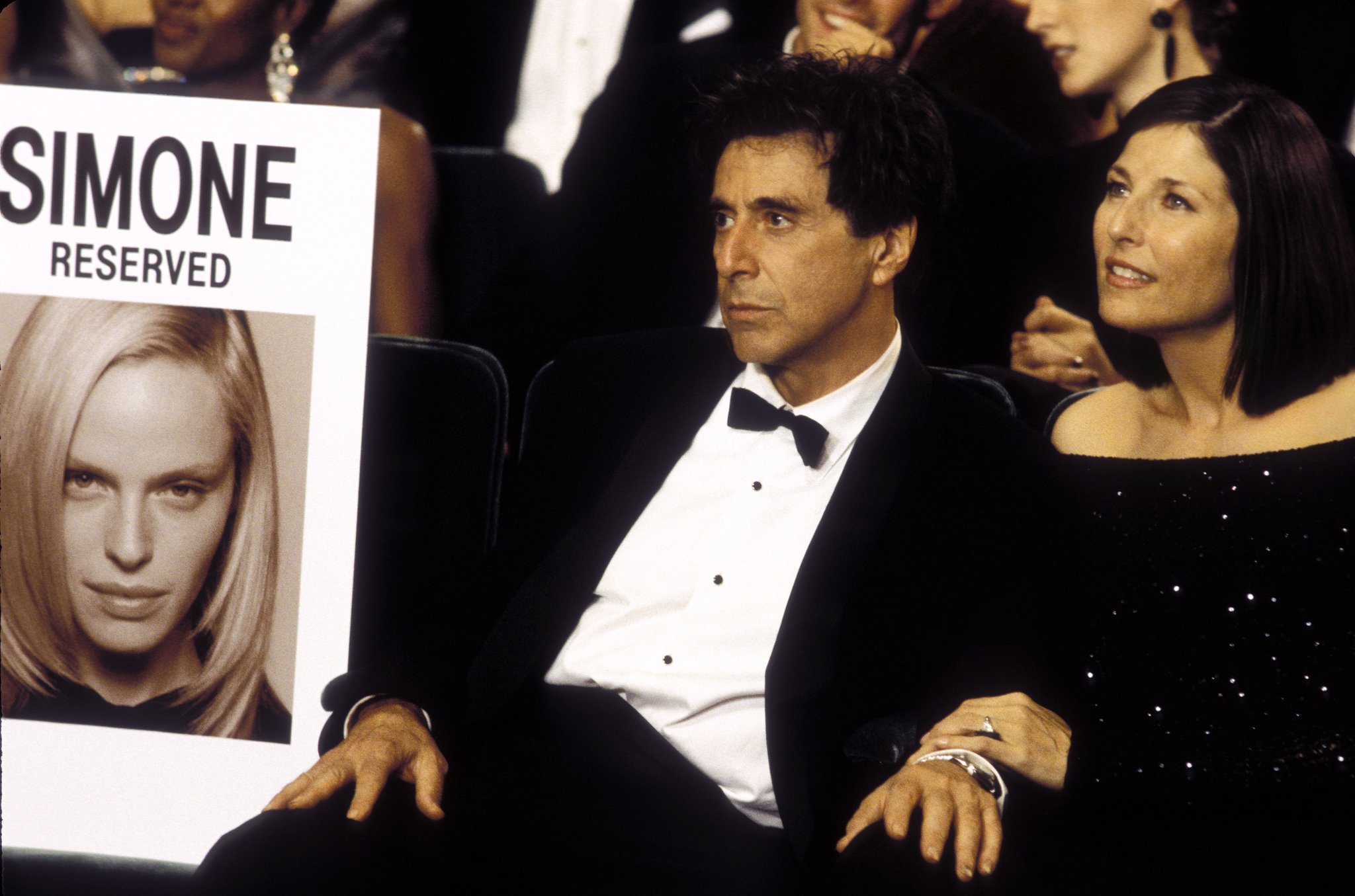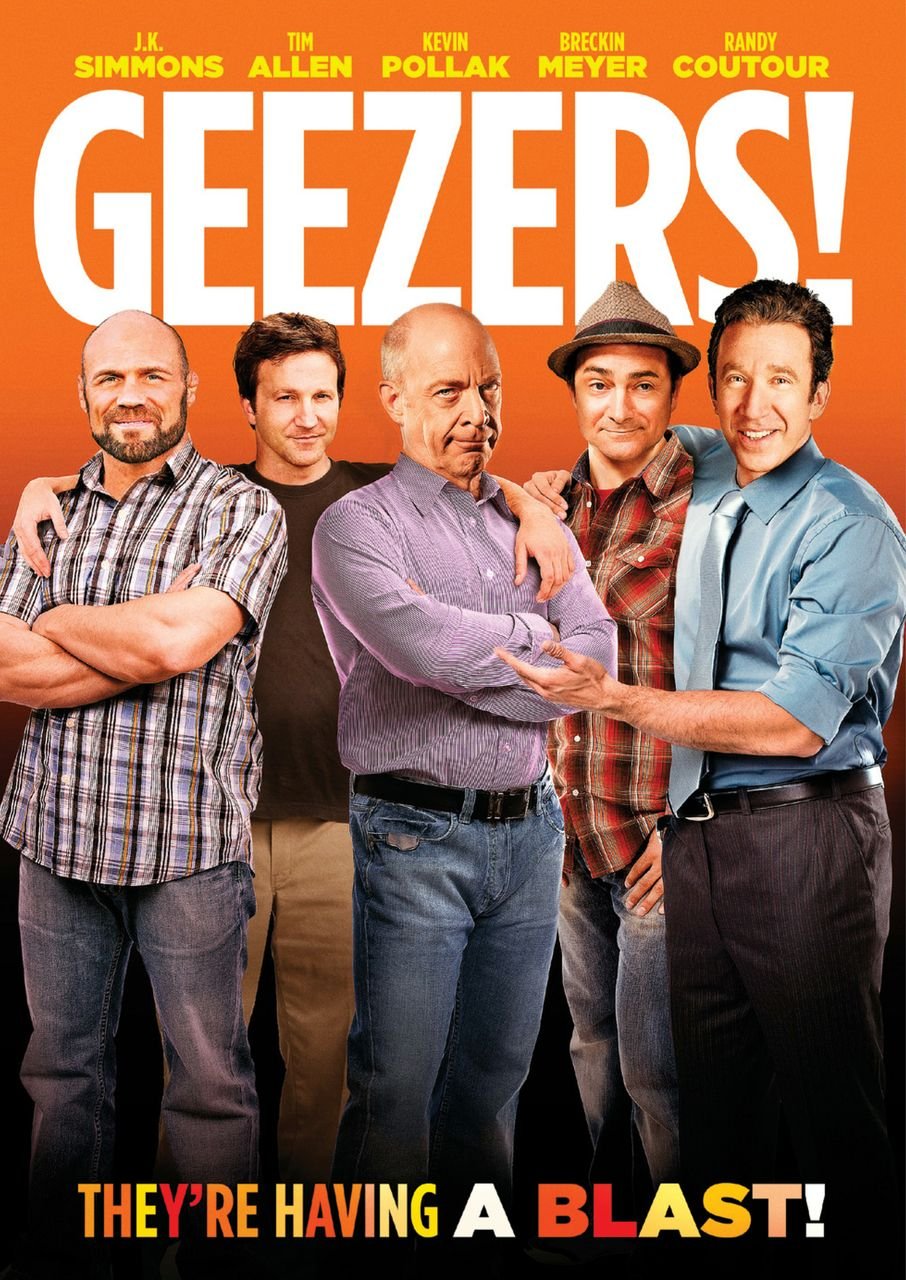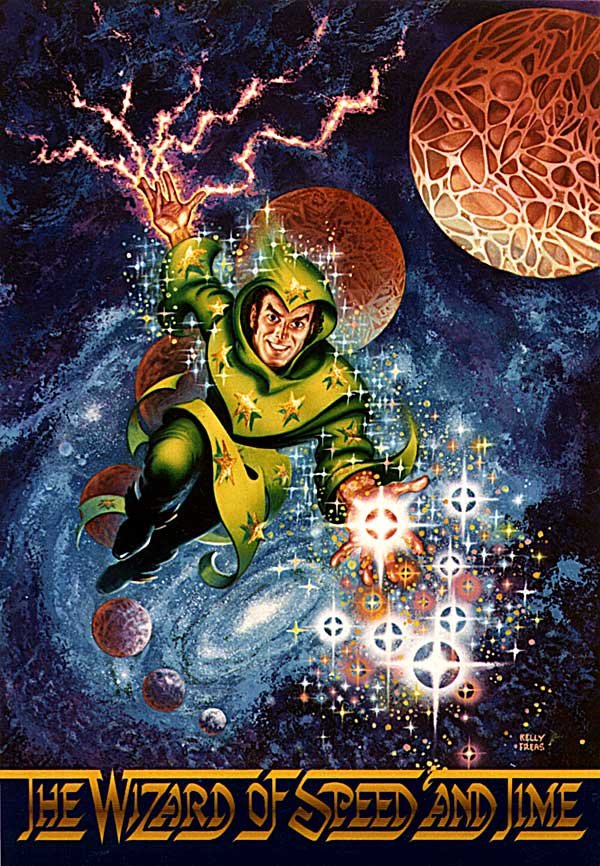Shards from the Fractured Mirror: Dirty Movie, Another Dirty Movie, SImone, 3 Geezers, Wizard of Speed and Time
For the last six months or so much of my time and energy has been devoted to working on The Fractured Mirror, my upcoming book about movies about the movie business. I’ve posted much longer versions of some of the pieces that I’ve written for the book on this website but the vast majority I only shared with people who pre-ordered the book through Kickstarter and Backerkit or who donate to this site’s Patreon page.
I’m quite proud of the work I’ve done on the book, as well as the kooky assortment of movies I’ve covered so I figured that every month I would share a handful of pieces I’ve written for The Fractured Mirror with y’all. I’ve written up 185 movies so far and will cover 300 in total so I am very open to recommendations on movies to write about.
In conclusion, please donate to my site’s Patreon page. I desperately need the income and I’d love to share these new pieces with as many people as possible.
National Lampoon’s Another Dirty Movie (2012)
The sole upside to sadistically making a sequel to an unforgivable insult like 2011’s Dirty Movie is that the original set the bar so low that it’s almost impossible not to clear it. Sure enough, 2012’s appallingly unnecessary Another Dirty Movie distinguishes itself merely by virtue of not being completely worthless. Overwhelmingly worthless? Of course. Disgusting, brutally unfunny and barely a movie? Yep. But unlike Dirty Movie, it is not entirely without merit.
The only thing keeping Another Dirty Movie from being as soul-crushing as its predecessor is a shockingly star-studded sequence where Bob Saget, Jason Alexander and David Schwimmer all tell Jonathan Silverman’s character to go fuck himself when he asks them to be in his film-within-a-film.
The cold-blooded delivery of the big name cameos is a welcome respite from the amateurism of the rest of the production but it’s also cathartic watching all too indulgent bit players tell Silverman, who also directed, what the audience would love to say to everyone involved with this slapdash assortment of bad street jokes cynically passed off as a motion picture.
The cheapie sequel’s annoyingly meta conceit is that it is the work of two student filmmakers trying to get laid by paying tribute to Dirty Movie and its creators, particularly the CEO of a cut-rate studio. The CEO is played by Robert Klein, who tragically returns in a performance that inspires only pity.
Jonathan Silverman is a double threat, humiliating himself in the director’s chair and onscreen as a sleazy, cut-rate pornographer and crude Jewish stereotype who decides to switch gears ever so slightly by making a movie exactly like Dirty Movie, with frequently naked nobodies badly acting out crude jokes.
It’s like Laugh-In minus the laughs but with racist jokes, sexist jokes, transphobic jokes, anti-semitic jokes, bestiality jokes, blonde jokes, doctor jokes, teacher jokes and jokes of every stripe except for funny jokes. It’s below the dignity even of a man who said yes to being in multiple Weekend at Bernie’s movies.
National Lampoon’s Dirty Movie (2011)
National Lampoon’s Dirty Movie was supposed to be respected dramatic actor Christopher Meloni’s directorial debut but when it limped onto video store shelves and undiscriminating streaming services its direction was credited to Jerry Daigle alone.
It’s easy to see why Meloni might want to distance himself from this humiliation. National Lampoon’s Dirty Movie is exhaustively, dispiritingly filthy but calling it a movie rather than a bunch of deleted scenes crying out for the cutting room floor is both inaccurate and generous.
The filmmakers set out to make a narrative version of The Aristocrats, which captured the zeitgeist and made a fuck-ton of money. Alas, they forgot that the surprise hit was fundamentally about something substantive in the sub-culture of comedians and their fascinating and profane rituals and traditions, and also that it was actually funny.
It’s just too bad for Meloni that he couldn’t opt out of the starring role in the film as well. The Emmy-nominated Law & Order veteran embarrasses himself with a bad wig and gag teeth as Charlie LaRue, a sleazy producer with a very stupid idea for a movie.
The schlock merchant wants to make a movie of nothing but dirty jokes. Charlie asks why a movie can’t just be people acting out the kind of rancid, politically incorrect garbage that fills racist joke books, Hee Haw/Laugh In-style, duct-taped together with the flimsiest of plots.
The “movie” then proceeds to illustrate through example why even the least ambitious scatological romp needs at least some semblance of plot and characterization. A feature-length cinematic comedy cannot survive on gratuitous nudity and hateful street jokes alone.
That Robert Klein and Mario Cantone manage to be even fitfully amusing in this fetid sewer of a comedy as Charlie’s appropriately mortified collaborators speaks to their innate talent and ability to create something approaching laughter in a vast oasis of bad ideas cheaply and limply executed.
When kids show up to deliver jokes and/or profanity it feels like child abuse. You don’t laugh at their profanity and child molestation gags; you worry about them and wonder where their parents are.
National Lampoon’s Dirty Movie is like Movie 43 but without all the class and structure.
Simone (2002)
Gattaca and The Truman Show screenwriter Andrew Niccol’s muddled 2002 show business comedy Simone was prescient in its depiction of digital actors representing the wave of the future but otherwise gets just about everything else almost impressively wrong.
A miscast Al Pacino is reduced to sluggish slapstick shenanigans as Viktor Taransky, a pretentious auteur who wishes he could realize his creative vision as a filmmaker without having to deal with actors and actresses, with their egos and demands and messy humanity.
The lilliputian director gets a chance to realize that misanthropic dream when Hank Aleno (Elias Koreas), an eccentric computer genius, gives him a code for a highly sophisticated digital actress shortly before dropping dead.
The desperate show-business survivor names the cyber-thespian Simone and, acting as her star-maker, puppeteer and Svengali, implausibly makes his virtual protege the most famous and beloved celebrity in the world. Simone is as elusive as Bigfoot, the Loch Ness monster and the late J.D Salinger but she’s also a huge pop star as well as an instant cinematic icon.
As played by newcomer Rachel Roberts, who would go on to marry Niccol, Simone looks like a slightly blurry Natasha Henstridge or a Sega CD version of a generically pretty blonde woman. She has dead eyes, a creepily vacant smile and a gently narcotized voice.
Yet the screenplay nevertheless never stops angrily insisting that Simone is the single most exciting and dynamic performer in the history of the universe. It needs us to believe that Simone combines the raw charisma of James Dean with the grace and charm of Audrey Hepburn and the talent of Meryl Streep.
But the more characters gush about how superhumanly talented and unbelievably beautiful the movie’s title character is, the more mediocre and unremarkable she seems.
Simone’s inexplicable popularity makes her director’s pretentious art films unlikely Academy Award winning smashes but with historic success comes unrelenting pressure for the computer diva to make public appearances and meet her adoring public in the flesh. That’s a problem, since Simone does not exist as anything other than a series of zeroes and ones that collectively make up a deeply unimaginative conception of the perfect Hollywood beauty.
Simone’s inane, borderline nonsensical plot calls for everyone to treat Simone with near-religious reverence and to be gullible enough to fall for Viktor’s scheme.
The great Catherine Keener radiates intelligence and toughness far too naturally to be convincing as Elaine Christian, Viktor’s dithering idiot of an ex-wife, the mother of his precocious daughter, a studio head and, of course, Simone’s biggest fan.
Simone’s premise (what if a beautiful actress was secretly a computer program?) would have to be fleshed out considerably just to qualify as one-joke. At an interminable 118 minutes, Simone is a staggeringly unfunny comedy that’s way too long.
How unfortunately appropriate that a movie about a fake actress would feel so phony and unconvincing.
3 Geezers! (2013)
An admirable if misplaced sense of husbandly devotion led the great J.K Simmons to degrade himself as the star of wife Michelle Schumacher’s rancid lowbrow comedy 3 Geezers! which more than lives up to the sad, sour crassness of its title.
Essentially Rapping Granny: the Movie but uglier and more lustily profane, the potty-mouthed, defiantly immature 3 Geezers! casts Simmons, only a year away from his Academy Award-winning performance in Whiplash, as veteran actor J. Kimball.
To help him prepare to play a man in his eighties in an upcoming film, J. decides to research the role by spending time in a nursing home with the titular elderly assholes: blind, black horndog Bernard (Lou Beatty Jr.), wacky wild man Victor (Basil Hoffman) and senile Rex (Will Bonaiuto).
Name a more iconic trio!
3 Geezers! subscribes to the popular if transparently false notion that it is inherently hilarious when senior citizens do anything other than watch Matlock and visit their grandchildren. 3 Geezers! has exactly one paper-thin joke—old people behaving like belligerent youngsters—that it runs into the ground.
The zany oldsters of 3 Geezers! rap along to the libidinous rhymes of 2 Live Crew, take center stage in a “parody” of the masturbation scene in Fast Times at Ridgemont High that’s devoid of jokes but also seems to last hours rather than minutes and generally behave like obnoxious teenagers.
Considering how little we value the elderly, a movie about their lives and issues should be welcome but no representation of senior citizens is better than this insult.
When the prominently billed likes of Tim Allen, Kevin Pollak, Breckin Meyer, Scott Caan, Randy Couture and, most shockingly, Simmons’ Spider-Man director Sam Raimi, pop up for roles that would have to be beefed up considerably just to qualify as cameos it feels like a misguided act of charity towards a production that can use all the help it can get.
Not even Simmons emerges from this monstrosity unscathed. The prolific and beloved character actor did better work in his commercials for M&Ms and Farmer’s Insurance but then he had better material as well.
3 Geezers! isn’t a movie. It’s elder abuse.
The Wizard of Speed and Time (1988) (FM)
The spirit of magician turned filmmaker and silent screen special effects pioneer Georges Méliès hovers playfully over the special effects-crazed 1988 movie world comedy The Wizard of Time and Space. It’s the long in the works feature film adaptation of writer-director-animator-everything-else Mike Jittlov’s popular 1979 short of the same name, which appeared on The Wonderful World of Disney.
A plucky independent production that deserves to be heralded as a bona fide work of movie magic, The Wizard of Speed and Time is a tribute to the infinite possibilities of cinema from an audacious neophyte filmmaker as brilliant as he is original.
Jittlov also stars as a fictionalized version of himself, an idealistic and hard-working special effects savant whose genius for cinematic sleight of hand transforms his everyday life as a struggling wannabe filmmaker into a mind-melting, kaleidoscopic spectacle of speed, color and goofball, child-like innocence.
Jittlov’s first and only film is a unique cinematic experience that doubles as a remarkable demo reel for its creator’s gifts as an animator and special effects wiz.
A guileless, boyish cross between Pee-Wee Herman and Rube Goldberg, but with an unfortunate libertarian streak, the reel Jittlov dreams of breaking into movies and making a film reflecting his idiosyncratic genius and remarkable skillset. Film is an inherently collaborative medium except when Jittlov is in charge; then it becomes more or less a one man show, with the obsessive filmmaker in complete control of every aspect of the medium.
The Wizard of Speed and Time’s ramshackle, meta plot serves as little more than a flimsy pretext for special effects set-pieces, each more impressive than the last, like a stop motion animation sequence with Jittlov roaring through the streets of Los Angeles on a freakishly speedy suitcase.
The astonishingly assured debut is a work of pure artisanship from a stubborn talent who does not need money, resources or a studio to make the impossible happen. Jittlov’s sole gift to cult cinema posits him as a consummate individualist in a movie world where originality invariably take a back seat to groupthink, corporate cowardice, formula and the creativity-stifling horrors of permits, unions, regulations and taxes.
When you make your innocent, pure-hearted special effects extravaganza a tribute to solitary geniuses triumphing alone against the evils of collectivism it helps to be an actual genius. The Wizard of Speed and Time indelibly establishes Jittlov as a filmmaker blessed and cursed with genius and madness, as someone who would not stop until he created something almost super-human through an almost unimaginable amount of work.
The Wizard of Speed and Time is that rare and most wonderful of creatures: something genuinely new, a dazzlingly creative vision never seen before. In its own modest way, it’s a movie miracle no less incredible for being so ingratiatingly homemade.
Buy The Weird A-Coloring to Al: Cynical Movie Cash-In Extended Edition at https://www.nathanrabin.com/shop, signed, for just 12 dollars, shipping and handling included OR twenty seven dollars for three signed copies AND a free pack of colored pencils, shipping and taxes included
Pre-order The Fractured Mirror, the Happy Place’s next book, a 600 page magnum opus about American films about American films illustrated by the great Felipe Sobreiro over at https://the-fractured-mirror.backerkit.com/hosted_preorders
The Joy of Trash, the Happy Place’s first non-"Weird Al” Yankovic-themed book is out! And it’s only 14.00, shipping, handling and taxes included, 25 bucks for two books, domestic only at https://www.nathanrabin.com/shop
Buy The Joy of Trash, The Weird Accordion to Al and the The Weird Accordion to Al in both paperback and hardcover and The Weird A-Coloring to Al and The Weird A-Coloring to Al: Colored-In Special Edition signed from me personally (recommended) over at https://www.nathanrabin.com/shop
Or you can buy The Joy of Trash here and The Weird A-Coloring to Al here and The Weird Accordion to Al here
Help ensure a future for the Happy Place during an uncertain era AND get sweet merch by pledging to the site’s Patreon account at https://www.patreon.com/nathanrabinshappyplace We just added a bunch of new tiers and merchandise AND a second daily blog just for patrons!
Alternately you can buy The Weird Accordion to Al, signed, for just 18 dollars, tax and shipping included, at the https://www.nathanrabin.com/shop or for more, unsigned, from Amazon here.














